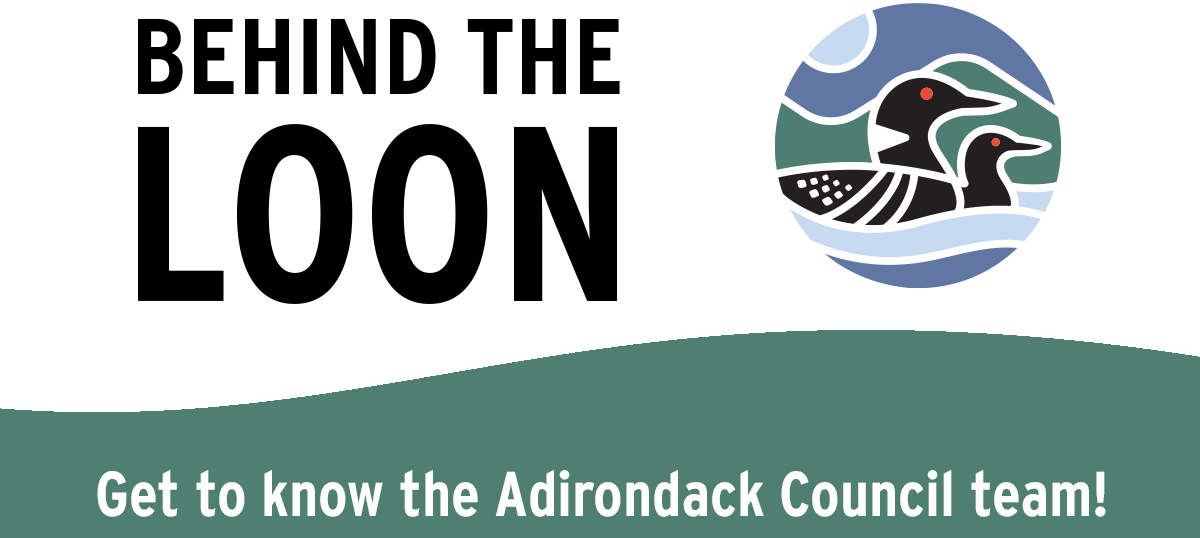
Behind the Loon - Meet Aimee Privitera!
Meet Aimee
Aimee attended SUNY Geneseo for her undergraduate work, where she majored in Political Science and Sociology. She also earned her master’s degree in Social and Public Policy from SUNY ESC, with an Advanced Certificate in Women’s and Gender Studies. Aimee held a series of campaign and coordinating positions before landing at the Adirondack Council. She has a passion for helping others and protecting the environment, especially the Adirondacks. Aimee resides in Saratoga Springs with her husband, child, and two cats.

Briefly Describe Your Role at The Council
As the Legislative Advocacy Assistant, I work with the Government Relations and Communications Teams to advance the Council’s advocacy agenda. My duties include managing legislative correspondence, researching significant environmental policy issues, and assisting in grassroots lobbying to encourage policymakers to act in the best interests of the Adirondack Park.

It's 5:00 on a Friday and you're leaving the office for the weekend. Where are you going, what are you doing?
Friday night is homemade pizza night in the Privitera household. I love relaxing at the end of the week before gearing up for a weekend that is equal parts productive and fun. My husband and I have a young son who is in awe of everything around him, especially nature. We really enjoy taking him to the Park on the weekends and seeing his face light up in wonder at the vast beauty and scale the mountains provide.

What's one thing people don't know about the Adirondacks, but should?
Many people don’t know about the legacy of Dollie Lowther Robinson, a labor rights organizer who moved from the South to New York in the 1930s. Dollie gained national recognition after decades of work advocating for unions, and was named a delegate for the 1967 New York State Constitutional Convention. At the convention, she spoke out against a proposed amendment that would make the Adirondacks susceptible to new construction within its wild forests. Dollie shed light on the fact that the Park belongs to everyone, not just the wealthy. Her speech was extremely well received, and the amendment was ultimately struck down. Dollie’s work is credited with the amendment’s defeat and is considered a precursor to the Adirondack Park Agency Act in the 1970s. Despite this, her efforts remain broadly unrecognized. Honoring Dollie’s role in the conservation of the Adirondacks is essential to learning its history and in moving forward with the goal of a more equitable and diverse Park.

What is one issue that we are engaged in that means a lot to you?
VISION 2050 provides a holistic, multidisciplinary approach to the conservation of the Park in the coming decades. It focuses on preserving natural communities, fostering vibrant human communities, and managing the Park as we grapple with the rapidly changing climate. VISION 2050 offers recommendations that are both short and long-term in the form of mitigation, adaptation, and education strategies to protect the Adirondacks and all its inhabitants. The Park has endured difficulties in the past; and with the work of the Council, advocates, partners, and policymakers, it will thrive in the future.





